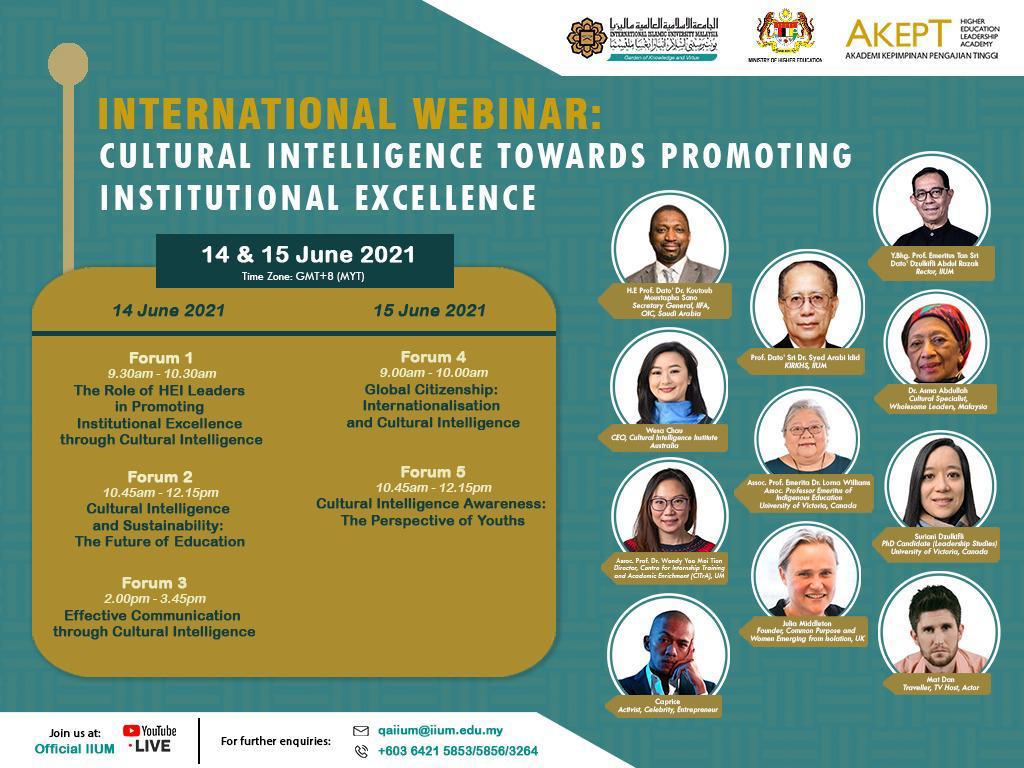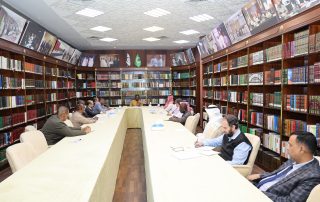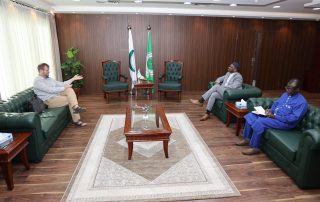
H.E. Prof. Koutoub Moustapha Sano, Secretary General of the Academy, participated in the International Symposium entitled Cultural Intelligence: Towards Promoting Institutional Excellence, on Monday 4 Dhul al-Qi’dah 1442, corresponding to 14 June 2021, via video conference.
At the beginning of his speech, His Excellency pointed out that cultural intelligence is one of the current issues that deserves to be studied and researched further. He stressed the importance of cultural intelligence in achieving integration and coexistence based on mutual respect, tolerance, and openness. The power of this type of intelligence lies in the ability of the individual to establish distinct relationships with other bearers of a culture different from his or her own, through his or her untiring quest for understanding, appreciation, and respect for the culture of the other, rising above and refraining from monopolizing the other’s culture, depreciating it or underestimating it.
The diversity and the plurality of cultures are among Allah’s graces and signs, for the Almighty said: (O mankind, indeed We have created you from male and female and made you peoples and tribes that you may know one another. Indeed, the most noble of you in the sight of Allah is the most righteous of you. Indeed, Allah is Knowing and Acquainted.) Al-Hujurat 13. The Almighty also said: ” And of His signs is the creation of the heavens and the earth and the diversity of your languages and your colors. Indeed in that are signs for those of knowledge.” Al-Rum 22.
The first verse is seen as a confirmation and consolidation of the supreme and ultimate goal of human diversity and cultural pluralism, which is knowledge, integration and communication. As for the second verse demonstrates that the language plurality and differences, as well as the cultural plurality and difference, is a sign of Allah in creation. Therefore, the discourse on cultural intelligence is an important discourse in the search for a better knowledge of the importance of cultural pluralism and how to use it in a positive way.
This topic becomes more important as it confirms the failure of arrogant attempts of some to apply globalization to everything in life, especially culture; however, in reality, it is in no way possible to globalize culture, which is an essential part of the intellectual and sensory formation of the human being, because culture is the expression of the intimacy that characterizes societies. Its globalization is nothing but the domination over the other and the miserable imposition of a limited and coercive culture. On the contrary, we must make the most of the pluralism of cultural and ethnic diversity, as proof of the Creator’s greatness and power, to achieve integration, rapprochement, coexistence, and tolerance among human beings at all times and places.
His Excellency pointed out that it is not surprising that the proponents of cultural globalization have failed because their call is based on contempt, arrogance, and complacency, while the world is more than ever turned towards tolerance, acceptance of the other and coexistence. He also indicated that the desired education today should be a balanced education that combines the spiritual and physical sides, the theoretical intellectual side and the practical behavioural side, and the concern for the things of this world and the preparation for the hereafter.
The more balanced is education, the more it paves way for a greater generation of young people characterized by moderation, integrity, equality, and coexistence. It rejects arrogance, domination, depreciation, and corruption on earth. A balanced education gives the learner humility, modesty and the ability to treat well those who differ with him in belief and culture, as well as the ability to seek aspects and areas of integration with the other and coexist with him, in order to work together in the development of the universe and achieve happiness and stability for all mankind.
His Excellency concluded his speech by praising the International Islamic University of Malaysia for adopting the principle of integrating science and knowledge and balancing between body and mind through the formulation of balanced programs that makes the learner proud of his or her religion and culture, recognizes the other’s right to life, respects his religion and culture, and open to the other who is different in his thinking and culture. He will also be able to engage positively with the societies in which he lives based on his firm belief that the world and the hereafter are complementary and not mutually exclusive, and that the soul and the body are mutually supportive and not mutually exclusive, and that cultures are equal and that there is no preference for one culture over another, for there is no culture superior and better than another.
Read Also
Lastest








